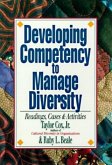The quests for the appropriate styles of leadership have always constituted major challenges to public organizations; as well as to public officials in the discharge of their public duties. Leadership skills are the abilities to identify the various concerns of followers or subordinates, and the usual knack of seeking the opportunities embedded in every problem. Obviously, public leaders in both political and organizational arenas should always be concerned with issues that have meaning to people, and endeavor to carry the people along. The perspectives of leadership styles that serve the interests of an organization or society have, however, always been subjects of debates. Most of the arguments focus on the authenticity and the transformativeness of any leadership style; as well as the appropriate organizational structures and behaviors to nurture and sustain each leadership style. Effective public leadership must address the needs and aspirations of the employees, followers, or the public as leadership is inseparable from their needs and goals. Everybody would have more say, and hence, contribute more to the organizational goals, thereby increasing organizational performance. For public organizations, this empowers the employees; and by so doing, the total effective power of the organization increases. The nature and form of the public organization, the organizational structures and behaviors, hence, bear some relevance to the kind of leadership that would thrive within. Generally, effective and sound leadership performances are better enhanced under the auspices of ethical organizations. The leadership styles in public organizations do affect the levels of motivation and empowerment derivable by the employees and subordinates. The processes of creating strategic leadership and managing organizational changes require employee motivation; which entails the involvement of members of staff at every level in the decision-making; thereby, allowing organization to tap into the creativity and energy of the employees. Public organizations need to develop the strategies that create the enabling environment for high involvement leadership through employee empowerment. This will in turn, create more positive feeling about work and the organization; more job satisfaction; and greater commitment to the organization. When changes are required, the purposes of engineering the strategic changes should always be to serve the nation and its citizens better. When all the necessary ingredients of change and the right leadership are available, creating the right balance and synergies among organizational processes always assures success. Although there is a measure of acceptance on the advantages of various leadership styles over others, efforts are constantly made to address the challenges that respectively confront each of them. Subsequently, there are effective leadership competences to adopt for optimizing leadership; as well as creating and managing organizational changes. The purpose of the book is to discuss the effects of optimizing leadership competences and the abilities of leaderships in enabling the effective management of public organizations, as well as in propelling the organization toward positive changes. This book explores various leadership theories and competences and how they affect the engineering and management of changes in organizations. In this book, there are extensive discussions on the effects of leadership styles on the ability of the public organizations to strategize and manage organizational changes. The book also analyzes the theory and classification of organizations, theories of motivation, theories of change management; and the theories of leadership, power, ethics, and culture; as they relate to the optimization of leadership competences in public organizations.
Hinweis: Dieser Artikel kann nur an eine deutsche Lieferadresse ausgeliefert werden.
Hinweis: Dieser Artikel kann nur an eine deutsche Lieferadresse ausgeliefert werden.








